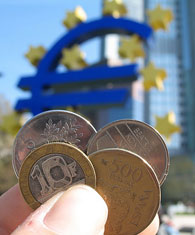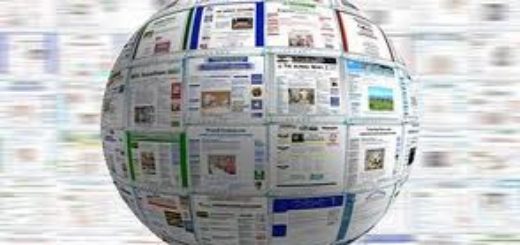 Households are running out of ways to avoid being stung by higher energy bills this winter after one of the UK’s big suppliers ended its fixed deal. EDF Energy is withdrawing its dual electricity and gas tariff, which is guaranteed to be maintained until April 2014, after a last-minute stampede. A rival supplier, Scottish and Southern Energy, unexpectedly announced last week that it would raise prices by 9 per cent. Other energy companies are expected to follow soon, triggering a rush by consumers to protect themselves by signing up to cheaper fixed deals. Some 700,000 households have signed up to EDF Energy’s Blue + Price Promise April 2014 tariff of 1,058 pounds a year, which compares favourably with its standard variable tariff of 1,129 pounds, The Times reports.
Households are running out of ways to avoid being stung by higher energy bills this winter after one of the UK’s big suppliers ended its fixed deal. EDF Energy is withdrawing its dual electricity and gas tariff, which is guaranteed to be maintained until April 2014, after a last-minute stampede. A rival supplier, Scottish and Southern Energy, unexpectedly announced last week that it would raise prices by 9 per cent. Other energy companies are expected to follow soon, triggering a rush by consumers to protect themselves by signing up to cheaper fixed deals. Some 700,000 households have signed up to EDF Energy’s Blue + Price Promise April 2014 tariff of 1,058 pounds a year, which compares favourably with its standard variable tariff of 1,129 pounds, The Times reports.
The European Central Bank (ECB) would be given sweeping authority over all 6,000 Eurozone banks under a plan being drawn up by the European Commission, putting Brussels on a collision course with Germany and the ECB itself, which have urged a more decentralised first step towards “banking union”. The plan, agreed at a meeting this week between top aides to José Manuel Barroso, commission president, and Michel Barnier, the EU’s senior financial regulator, would strip existing national supervisors of almost all authority to shut down or restructure their countries’ failing banks, giving those powers to Frankfurt. Under the proposal, ultimate authority would pass to a new ECB “supervisory board” separate from the ECB’s existing governing council. Although its make-up is still being debated, the leading plan would create a 23-member board: a national representative from each Eurozone country plus six independent members, including its chair and vice-chair, The Financial Times.
Qatar Holding has confirmed that it will vote against the $70bn merger of Glencore and Xstrata next week after Glencore failed to propose any improvement in terms. As the deal enters its final days before shareholders vote, Qatar, which has a 12% stake in Xstrata, said that it could not accept Glencore’s offer of 2.8 of its shares for each one of Xstrata’s. Bankers on both sides of the deal, who stand to lose millions in fees if it collapses, are trying to shape how its failure will be perceived by investors. The Times.
India’s biggest privately owned steelmaker has triggered a trade row after it accused South Korean rivals of dumping steel. Seshagiri Rao, the managing director and chief financial officer of JSW Steel, told The Times that Korean companies, including Hyundai and Posco, were abusing the terms of a free trade agreement and that he had appealed to Delhi to clamp down on the practice. Mr Rao said: “An FTA should be of mutual benefit, not put one side at an advantage. That needs to be examined.” An agreement signed in 2009 by Japan, India and South Korea cut Delhi’s import duties on steel from 7.5% to 3.15%. The duty is due to fall to zero by 2014. In the three months to July, Indian steel imports surged to 2.99m tonnes, compared with 1.92m tonnes during the same period last year. Almost all of the extra imports came from South Korea and Japan, which have about 196m tonnes of installed steelmaking capacity between them but only 120m tonnes of domestic demand, the newspaper reports.
The impasse in Japan’s parliament has raised fears among investors that the world’s third largest economy is being driven towards a “fiscal cliff”, Reuters reported. “The government running out of money is not a story made up. It’s a real threat,” Finance Minister Jun Azumi told a news conference, making a last-ditch appeal for cooperation by opposition parties to pass the bill. “Failing to pass the bill will give markets the impression that Japan’s fiscal management rests on shaky ground,” he said. Unless the bill clears the current parliamentary session that ends next week, the government will start suspending or reducing some state spending to avoid running out of money for as long as possible, the finance ministry said, The Telegraph.
Premier Wen Jiabao told German Chancellor Angela Merkel that Europe must “strike a balance” between fiscal tightening and measures to promote growth. “Europe’s debt crisis has continued to worsen, giving rise to serious concerns in the international community. Frankly, I am also worried,” he said. His comments mark a shift in Chinese policy. Beijing has until now backed austerity across Euroland, but the severity of China’s own downturn has begun to rattle policymakers. Exports of electronic goods to Italy crashed 43% in July from a year earlier, and sales to Germany fell 11%. Caixin reported that processing trade to Europe fell 21%. The Telegraph.
An urgent government-level investigation has been launched to identify the source of an oil spill in the North Sea off Aberdeenhire. A sheen of oil, estimated to contain up to 132 tonnes of oil – equivalent to almost 800 barrels – was spotted from the air 100 miles north-east of the St Fergus terminal on the Buchan coast. The sheen is only two-and-a-half miles from a subsea pipeline, operated by Talisman Energy, where an estimated 13 tonnes of oil are believed to have leaked through a crack in the pipeline over the past week. But detailed analysis has now ruled out any link between the two spills. A spokesman for Aberdeen-based Talisman said yesterday that the “third-party” sheen had been sighted by a spotter plane following the discovery of a leak in the subsea pipeline that connects the Galley field to the company’s Tartan Alpha platform, 117 miles north-east of Aberdeen, The Scotsman.
After five years of trying to force the TV world to “go Google”, the search company has abandoned its scheme to trade broadcast ads in the same way as it does online banner ads.cIn a victory for the traditional media establishment against a digital insurgent, Google quietly announced in a blogpost on Thursday evening that it would close its TV Ads in Adwords product later this year. The service, which at one stage partnered with NBC Universal and the Hallmark Channel, was supposed to combine the speed, flexibility and targeting capabilities of the web with the emotional punch of the 30-second spot. But amid resistance from some parts of Madison Avenue, Google struggled to obtain enough airtime upon which to sell ads. The Financial Times.







